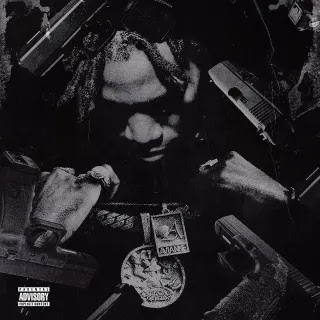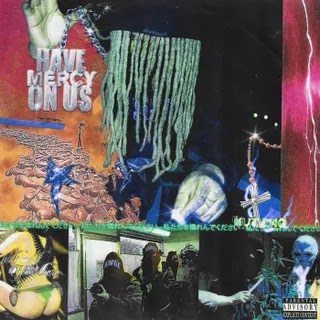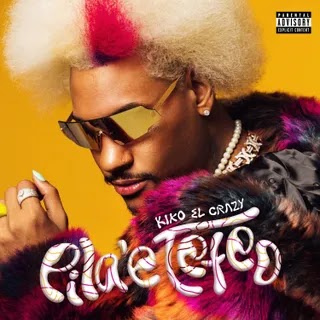Drake’s sixth album sounds good but feels labored. Melancholic and often incisive, it becomes an overlong and very familiar journey through the life, mind, and heart of Drake.
The Certified Lover Boy is selectively honest, occasionally heartless, and set in his ways. He’ll text, “I love you,” and pretend he doesn’t; he’ll ask for a sympathetic ear, but scoff and leave “if you throw another pity party” about your own troubles. He’s Drake—past, present, and future— and Certified Lover Boy, accordingly, is referential and reverential, an 86-minute omnibus of all things Drake. Being everything at once, the Drake of Certified Lover Boy is also indecisive and even fatigued. Drake is still trying to balance fame, intimacy, ambition, and insecurity, and he’s still learning who to trust—it’s always trust with Drake—but there’s a malaise that lingers across his sixth album, as if Drake has lost himself in the Library of Drake, less sure where he’s supposed to devote his attention while an emptiness creeps into his life and lifestyle.
The labored environment of Certified Lover Boy is a mild surprise after following the album’s quick and billboard-heavy rollout. While apparent rival Kanye West took a month and a half to release Donda, darkening the project a bit more with each preview, Drake announced and released his album in the span of a week and played coy, ultimately sharing no singles and letting Tidal’s chief content officer serve as hype man, a role that included confirming the album artwork, world-famous con artist Damien Hirst’s immaculate conception of 12 pregnant women emoji placed on a stark white background. The cover is puerile and the strangest in his discography, as if he wanted to reach an iconographic nadir before his popularity waned, a wink that he can create seismic social ripples with just an iOS keyboard. In that way, the Hirst cover suggested a levity and even self-effacing irony that is not found on the album.
At various points on Certified Lover Boy, it feels like Drake is trapped in the empire he’s built and the narrator-character he’s created. Luxury and pettiness, common Drake themes, are persistent across the album and it frequently sounds like he’s tired of both. On “In the Bible,” he’s with a group of women who are taking shots at the Tao Nightclub in Las Vegas and murmurs, “You don’t know love, you don’t love me like my child.” Later, on “Pipe Down,” he sings, “How much I gotta spend for you to pipe down?” He’s not pining for a simpler life or even his own past, the way he might have on 2013’s Nothing Was the Same or 2016’s Views, but just something to enjoy, something to appreciate, a greater raison d’être than another trip on Air Drake with limitless tequila—seriously, he sounds forlorn when he repeats, “Lotta ’42 on the flights I’m takin’,” on the Jay-Z collaboration “Love All.”
Further communicating Drake’s opulent inertia is the album’s dark and cloistered atmosphere, a continuation of the cold Toronto sound that Drake and Noah “40” Shebib introduced to the world over a decade ago. There is broadly one tone across Certified Lover Boy—the sort of haze that could color a Monet facsimile—which, as ever, foregrounds Drake as the voice and instrument to shine through the mist. And while the album is his most musically cohesive since Nothing Was the Same, it’s also repetitious. There are pleasant, classic Drake moments, like “Girls Want Girls,“ “7am on Bridle Path,” and “Fair Trade,” but, mostly, the production hums along ably at best. Drake’s vocal performances, too, are mostly fine, the “Drake featurin’ Drake” that he could emote in his sleep. The mid-album cut “No Friends in the Industry” is particularly good, a rare song where he sounds animated and interested in what he’s saying, experimenting with a few different flows.
Also among the early standouts of Certified Lover Boy is the tawdry “Way 2 Sexy,” which samples Right Said Fred’s “I’m Too Sexy.” The song is knowingly ridiculous, opening with Future rattling off all the things for which he’s too sexy, including codeine cough syrup, and Drake is having fun the way he did on his Scary Hours 2 EP and Smiley’s “Over the Top.” The conceit, as confidently dumb as Right Said Fred’s, is too simple to gum up with worries or inwardness. It’s a recklessness that he adopts on “Papi’s Home” and “Girls Want Girls,” where he ribaldly declares himself a lesbian, like the cleverest little boy at sleepaway camp. There’s always been room on Drake albums for these lighter tracks—“Worst Behavior,” generously, is like nothing else on Nothing Was the Same—but they’re fewer and farther between on Certified Lover Boy, immediately among the more self-serious Drake releases.
And seriousness can be OK because Drake albums are always long—Certified Lover Boy is 15 seconds shorter than the deluxe edition of 2011’s Take Care—and submersion into his solipsism is expected if not outright required. When Drake feels something, you’re meant to feel it, too, but he’s feeling everything on Certified Lover Boy, never committing to one particular mode. There is the tough Drake of “No Friends in the Industry” and “Knife Talk,” the tender Drake of “Fountains,” the flippant Drake of “Papi’s Home,” the reflective and regretful Drake of “Fucking Fans,” and even more. The album, in turn, feels more like a survey than an immersion, no particular emotion sticking or leaving a strong impression.
There are also broad contradictions—like when he seems to desire marriage on “Race My Mind,” only to dismiss fidelity on “The Remorse”—and more immediate hypocrisies, as on “TSU,” the song that regrettably credits R. Kelly due to an orchestral sample from “Half on a Baby” and finds Drake rapping, “We used to do pornos when you would come over, but now you got morals and shit/I got like four on the wrist and an adorable kid.” It’s a phenomenon he addresses on the first track, rapping, “Lived so much for others don’t remember how I feel.” There are enough styles of Drake that it’s become natural for him to fulfill one of his own archetypes when, at this point in his life and career, he is laying bare his uncertainty, attempting to square the idea of himself with what he really believes. Still, the music works well when he gives in and combines his styles and eras, as on “In the Bible,” “Pipe Down,” and “Get Along Better,” songs that are subtle evolutions of Drake, bridging gap the between past and present.
Certified Lover Boy opens disorientingly with a swirling, pitched-up sample of the McCartney-Lennon-written “Michelle.” It’s an exceedingly loud loop, a disembodied voice competing with Drake’s “Champagne Poetry” lyrics. Almost impressively, it makes no sense. The obvious reaction is that sampling the Beatles is a flex, but Drake’s clout and wealth have already bought him a Michael Jackson hook enmeshed well enough into its song that Jackson was credited as a featured artist. (There’s also a longer, knottier version of the story where it’s not actually a sample of the Beatles but rather the Singers Unlimited, and the beat is actually seven years old, but Paul and Yoko are still going to collect royalties, so “Champagne Poetry” isn’t necessarily coming cheap.) Sometimes you have to throw your hands up and say, That seems like something Drake would do, whether that means calculated corniness, rote gaudiness, or mandated petulance. He’s the executive producer also forced to take centerstage, knowing he’s got to give the audience what they want while working on the bigger picture. With much of Certified Lover Boy, Drake seems to be doing what he thinks Drake would do, and ticking the box is taking its toll.
















0 comments:
Post a Comment